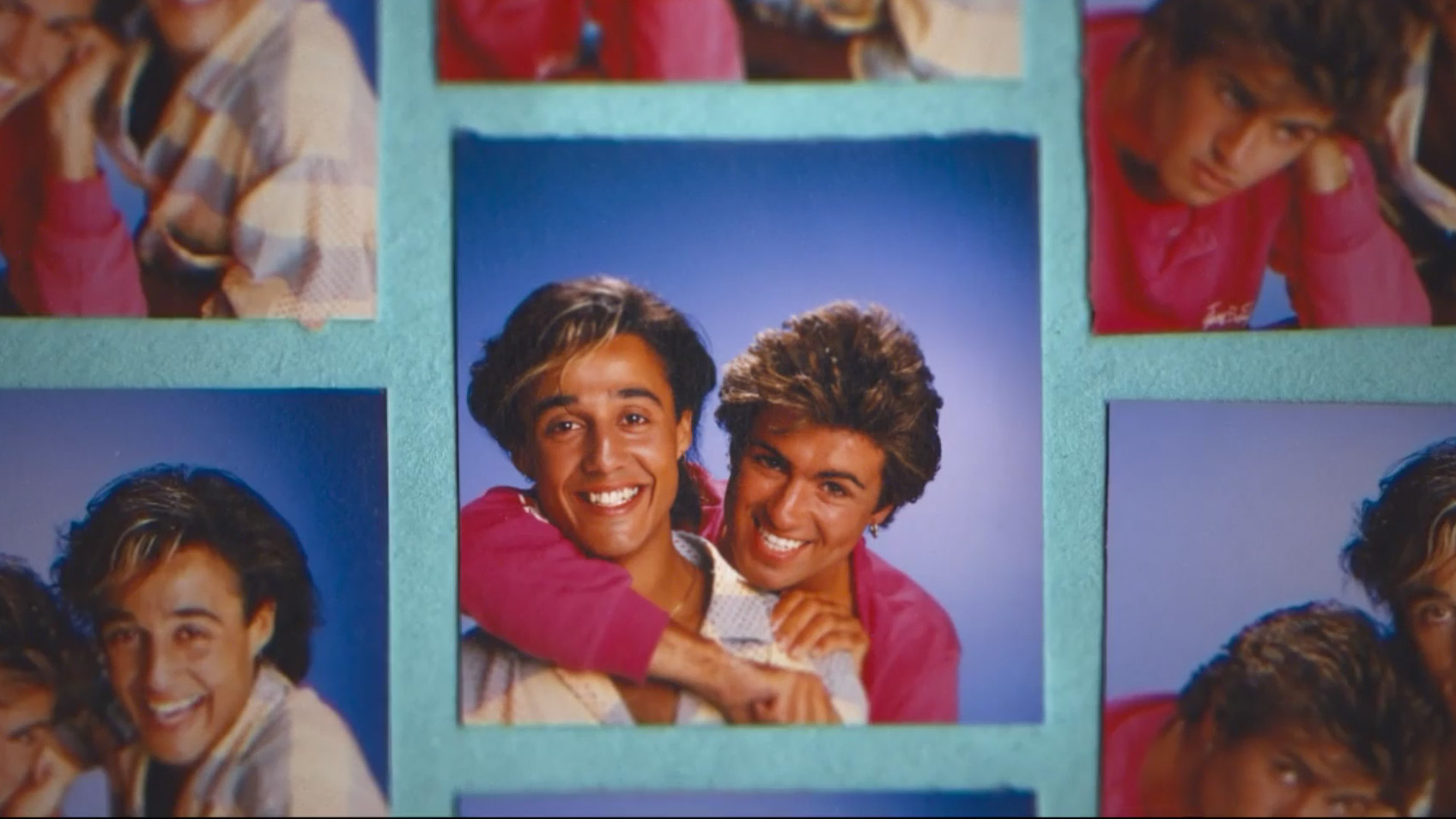Robbie Williams vs Wham!: the Netflix docs fight has a clear winner
Of the two big British musical docs on Netflix this year, we think one is miles better

If you're a Netflix subscriber, you'll have noticed that it's been a great few months for feature-length or TV documentaries on British icons. Most recently we've had Robbie Williams, a four-part series featuring the former Take That singer watching footage from his past and narrating some of it.
Between the man's band and solo career, this is a figure iconic to multiple generations; I found it disappointing, then, that this is a shallow and surprisingly uninformative glance at the "Angels" singer.
It's even more jarring if you've watched another recent Netflix pop doc: Wham! came out on Wednesday, July 5, and it's a feature-length story charting the origin, fame and George Michael spin-off of the "Wake Me Up Before You Go-Go" pop band.
Both of these stories look at instantly recognizable British pop figures, ones which begin with boy bands and end with solo careers, with coverage consisting largely of archival footage but with some modern narration too. So why did I find Wham! so informative yet Robbie Williams so unengaging?
The rise of a pop star

It's probably worth clarifying for this op-ed my knowledge of both Robbie Williams / Take That and Wham! / George Michael: having grown up in the late 1990s and 2000s I know songs from all of them (the former two more than the latter), but I know next to nothing of the dramas and scandals beyond that.
Wham! starts pretty much as you'd imagine a biographical documentary would: it shows us how George Michael and Andrew Ridgeley met in school and grew together. By the time Wham! starts making music, the segment has effectively set up England at the time, the home lives of these two figures and their relationships with each other and their families; all these themes prove important over the course of the feature.
So what about Robbie Williams, with its total runtime more than twice that of Wham!? The sum total of footage recorded prior to the formation of Take That is... a single line from Williams: "When I was a kid, I was kinda like... thick. Can't spell, I can't add up or subtract." the accompanying footage is the boy playing on what seems like a Game Boy. Then, the literal next shot is Take That rehearsing, and we're only four minutes into the four-hour series (including the title sequence).
The latest updates, reviews and unmissable series to watch and more!
Without establishing anything of Williams' upbringing or childhood, it feels like we're missing a key component of the star's origin. Lots of his later life, from his drug tendencies to his relationship troubles and even the subjects of his songs, would be a lot more interesting if I had any idea as to Williams as a human.
As with his childhood, Williams' stint in Take That is raced through, and the documentary leaves it in a hazy blur that leaves you thinking "Wait, was that it?". We don't learn much about the man's thoughts on his time in the band, with just a few interesting lines about his changing attitude and building resentment towards Gary Barlow. And then Take That breaks up, just 15 minutes into the documentary, with three of the five members of the band never even being named.
One could argue that the Robbie Williams documentary is about the man's solo career, not his time in Take That, but I don't think that's true. It's about the figure himself, and without this fundamental context, I really struggled to get a sense of who he is.
Wham! on the other hand manages to be a lot more poignant, simply because I really understood George Michael thanks to our time learning about his origins.
Reading between the lines

The first episode of Robbie Williams is called "Let's Get Wrecked", ostensibly titled after his troubles with drugs and alcohol, despite the fact that they're not mentioned past about the 24-minute mark. And it's clearly a pivotal aspect of Williams' past that he still has strong feelings and regret about... not that the documentary wants us to know that, though.
This aspect of his life, like the Take That years, is sped through with furious abandon, and all my issues mentioned above stand here. But I found myself doing something that's not a good sign for the documentary, and looking at the Wikipedia page for the man as I watched the show.
Admittedly Wiki isn't always the most thorough or reliable source on the internet, but even this text provided me with lots of important information (all sourced) on the man that the documentary skipped over.
For example, it mentions that one of Williams' key concerns at Take That was that he wanted to write more hip-hop and rap songs. Plus, it mentions that Take That split up on the man's birthday and that the band had behavioral rules that Williams repeatedly broke.
Each of these titbits of information would give me a much clearer idea of Robbie Williams' situation and mindset at the time. Instead, what we do see only reveals that there's a lot that's being omitted. It's never a good sign if I end up looking up a Wikipedia page before a documentary has even finished!
I'm not accusing Robbie Williams of being a vanity project from the man, and it really seems that he's willing to embrace his troubled past. It's just that the documentary fails to grasp the interesting aspects of its own narrative.
Rest assured I didn't do the same thing during Wham!, and I was drawn in by the changing dynamics between Ridgeley and Michaels. This isn't because of the story itself — at their core these rags-to-riches stories are pretty similar — but by the way the film itself handled its material.
That's not to say that the Wham! documentary includes every single important detail about the band, but I didn't find myself distracted from the video, reading between the lines while it was still playing. It decides on an angle and explores that one aspect in depth.
Documentary concerns

Perhaps the largest difference between Wham! and Robbie Williams that I felt from watching them is the intent behind them.
Wham! felt like a historical record, charting an interesting story from popdom with a definite angle and well-structured story. You could replace the real figures with fictional characters and it'd be just as compelling. It doesn't cover up some of the more tragic sides of their story, but doesn't use these to define it either.
But when I watched Robbie Williams it felt more like a PR puff piece, insisting that the popstar is an inspirational and complex character without giving us any details or evidence on how or why. It was an unfulfilling portrait that only inspired me to look to other sources.
I can't accuse Robbie Williams of being Netflix's only vapid documentary project — the streamer has plenty of series that I'd accuse of really failing to fully explore their subjects, and in some cases even exploiting them. RW is certainly a far cry from the worst of the bunch, but as someone who grew up with the music of Williams and Take That and really wanted to understand the man behind the songs, I still don't feel enlightened.
So if you're looking to stream a pop music documentary on Netflix, I'd recommend you go straight to Wham!, because it's really "A Ray of Sunshine".

Tom is the streaming and ecommerce editor at What to Watch, covering streaming services in the US and UK.
As the site's streaming expert he covers new additions, hidden gems, round-ups and big news for the biggest VOD platforms like Netflix, Apple TV Plus, Disney Plus, Prime Video and Tubi. He also handles the site's articles on how to watch various movies, TV shows, sports, live events and classic box sets, and coverage on hardware like TVs, soundbars and streaming sticks.
You can commonly find him at film festivals, seeing classic movies shown on the big screen, or going to Q&As from his favorite film-makers and stars.

